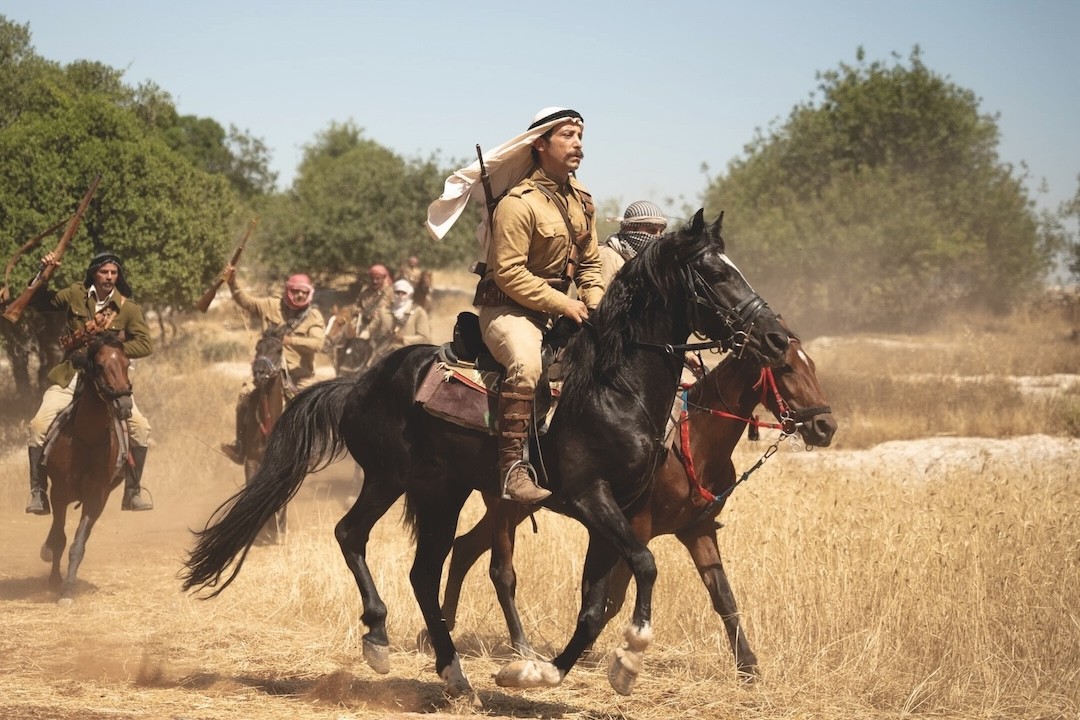It is no secret that Hollywood has dragged its feet in recognising the genocide unfolding in Gaza, and the British cultural and political establishment has taken just as long to confront its own responsibility. In a world still misled into believing that the conflict began on 7 October, Palestinian filmmaker Annemarie Jacir pushes the timeline back almost a century. Her new film Palestine 36 returns to 1936, when the Arab Revolt stirred beneath the weight of British rule, as waves of Jewish immigration and the quiet violence of land sales began to rewrite the fate of Palestine.
With its grand ambition and multi-strand structure, Palestine 36 feels like the kind of sweeping historical epic Hollywood once made and no longer dares to. Jacir opens her story in the seismic years of 1936 and 1937, weaving together personal awakenings and political tremors through the intersecting lives of Yusuf (Karim Daoud Anaya), a young villager pulled towards Jerusalem while working for the well-educated journalist couple Amir (Dhafer L’Abidine) and Khuloud (Yasmine Al Massri); Khalid (Saleh Bakri), a Jaffa dock worker pushed into rebellion by exploitation; and the rural family of Afra (Wardi Eilabouni), whose mother Rabab (Yafa Bakri) and grandfather Abu Rabab (Kamel El Basha) cling to their land as British patrols close in. Opposite them stand the faces of the empire: High Commissioner Wauchope (Jeremy Irons), all polished duplicity; Thomas Hopkins (Billy Howle), full of ideals he will not risk himself to defend; and Captain Orde Wingate (Robert Aramayo), whose cold, religious zionist zeal fuels cruelty. Jacir threads these stories with archival images and poetic intertitles, building not a lecture but a living mural of early revolt, showing how ordinary people became the unacknowledged architects of a nation’s political consciousness.
Watching Palestine 36 from the UK, it is impossible not to see how its ninety-year-old mirror reflects the present. Co-produced by the BBC and BFI, the film is strikingly direct in exposing Britain’s role in engineering suffering on occupied land. Through its portrayal of different kinds of Britons such as the cunning politician Wauchope, the fanatical soldier Orde Wingate, and the hesitant idealist Thomas Hopkins, Jacir reveals the contradictions of an empire that claimed neutrality while fuelling catastrophe. Cold-blooded Zionist officers like Orde are hardly unfamiliar if one follows social media today, yet Thomas feels closer to home. He is a man of conscience, an ‘ally’ of the Palestinian people, but his compassion ends where risk begins. He cannot fight beside them, so he turns away, closing his eyes to the tragedy in front of him. Through his struggle, Jacir asks what complicity really means, when solidarity has limits, when allyship becomes a comfort for the privileged rather than a force for justice.
In the educated Palestinian couple Amir and Khuloud, Jacir traces how colonial pressure corrodes political integrity. Amir’s willingness to trade dignity, and even the safety of his own people, for proximity to the British establishment echoes chillingly in the present, where accusations of antisemitism are weaponised to silence those who speak against injustice. The film also gestures toward another form of betrayal, as the press, once imagined as democracy’s fourth estate, has been corrupted by an army of writers who disguise propaganda as truth.
Yet this epic structure brings with it the genre’s familiar tensions. At times the film’s drama, body language, and symbolic gestures feel shaped by a Western tradition, as though the style itself must translate history for an imagined global audience. Compared with the textured intimacy of Palestinian works like With Hasan in Gaza and Put Your Soul on Your Hand and Walk, Palestine 36 can resemble the lyrical, crafted historicism of The Wind That Shakes the Barley more than the unique, lived rhythm of Palestine. Still, its ambition is undeniable. In its patchwork of voices and its insistence on looking backward to understand the present, Jacir’s film becomes a reminder that history is not a distant chapter but a wound still open, still pulsing, still shaping the world we inhabit.
Screened as part of London Film Festival on the road


Comments